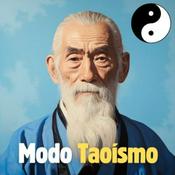128 episodios
- Join the Whatsapp Group for daily messages and if you have any questions: https://chat.whatsapp.com/FU4pxFWwiBmDLW8lHNliZr
Join Secrets of Success on Telegram:
https://t.me/rasajnadas
Join LIVE session on SAVAJI ONLINE YouTube Channel every Sunday https://www.youtube.com/@savajionline
It is not possible to comprehend the greatness of Kṛṣṇa and His opulences. The senses of the individual soul are limited and do not permit him to understand the totality of Kṛṣṇa’s affairs. Still the devotees try to understand Kṛṣṇa, but not on the principle that they will be able to understand Kṛṣṇa fully at any specific time or in any state of life. Rather, the very topics of Kṛṣṇa are so relishable that they appear to the devotees as nectar. Thus the devotees enjoy them. In discussing Kṛṣṇa’s opulences and His diverse energies, the pure devotees take transcendental pleasure. Therefore they want to hear and discuss them. Kṛṣṇa knows that living entities do not understand the extent of His opulences; He therefore agrees to state only the principal manifestations of His different energies. The word prādhānyataḥ (“principal”) is very important because we can understand only a few of the principal details of the Supreme Lord, for His features are unlimited. It is not possible to understand them all. And vibhūti, as used in this verse, refers to the opulences by which He controls the whole manifestation. In the Amara-kośa dictionary it is stated that vibhūti indicates an exceptional opulence.The impersonalist or pantheist cannot understand the exceptional opulences of the Supreme Lord nor the manifestations of His divine energies. Both in the material world and in the spiritual world His energies are distributed in every variety of manifestation. Now Kṛṣṇa is describing what can be directly perceived by the common man; thus part of His variegated energy is described in this way.
In this verse Arjuna is addressed as Guḍākeśa, which means “one who has conquered the darkness of sleep.” For those who are sleeping in the darkness of ignorance, it is not possible to understand how the Supreme Personality of Godhead manifests Himself in various ways in the material and spiritual worlds. Thus this address by Kṛṣṇa to Arjuna is significant. Because Arjuna is above such darkness, the Personality of Godhead agrees to describe His various opulences.Kṛṣṇa first informs Arjuna that He is the soul of the entire cosmic manifestation by dint of His primary expansion. Before the material creation, the Supreme Lord, by His plenary expansion, accepts the puruṣa incarnation, and from Him everything begins. Therefore He is ātmā, the soul of the mahat-tattva, the universal elements. The total material energy is not the cause of the creation; actually the Mahā-viṣṇu enters into the mahat-tattva, the total material energy. He is the soul. When Mahā-viṣṇu enters into the manifested universes, He again manifests Himself as the Supersoul in each and every entity. We have experience that the personal body of the living entity exists due to the presence of the spiritual spark. Without the existence of the spiritual spark, the body cannot develop. Similarly, the material manifestation cannot develop unless the Supreme Soul, Kṛṣṇa, enters. As stated in the Subāla Upaniṣad, prakṛty-ādi-sarva-bhūtāntar-yāmī sarva-śeṣī ca nārāyaṇaḥ: “The Supreme Personality of Godhead is existing as the Supersoul in all manifested universes.” - Join the Whatsapp Group for daily messages and if you have any questions: https://chat.whatsapp.com/FU4pxFWwiBmDLW8lHNliZr
Join Secrets of Success on Telegram:
https://t.me/rasajnadas
Join LIVE session on SAVAJI ONLINE YouTube Channel every Sunday https://www.youtube.com/@savajionline
In these two verses the Supreme Lord gives a chance to the Māyāvādī philosopher, for here it is clear that the Supreme is different from the individual soul. Arjuna, after hearing the essential four verses of Bhagavad-gītā in this chapter, became completely free from all doubts and accepted Kṛṣṇa as the Supreme Personality of Godhead. He at once boldly declares, “You are paraṁ brahma, the Supreme Personality of Godhead.” And previously Kṛṣṇa stated that He is the originator of everything and everyone. Every demigod and every human being is dependent on Him. Men and demigods, out of ignorance, think that they are absolute and independent of the Supreme Personality of Godhead. That ignorance is removed perfectly by the discharge of devotional service. This has already been explained in the previous verse by the Lord. Now, by His grace, Arjuna is accepting Him as the Supreme Truth, in concordance with the Vedic injunction. It is not that because Kṛṣṇa is Arjuna’s intimate friend Arjuna is flattering Him by calling Him the Supreme Personality of Godhead, the Absolute Truth. Whatever Arjuna says in these two verses is confirmed by Vedic truth. Vedic injunctions affirm that only one who takes to devotional service to the Supreme Lord can understand Him, whereas others cannot. Each and every word of this verse spoken by Arjuna is confirmed by Vedic injunction.In the Kena Upaniṣad it is stated that the Supreme Brahman is the rest for everything, and Kṛṣṇa has already explained that everything is resting on Him. The Muṇḍaka Upaniṣad confirms that the Supreme Lord, in whom everything is resting, can be realized only by those who engage constantly in thinking of Him. This constant thinking of Kṛṣṇa is smaraṇam, one of the methods of devotional service. It is only by devotional service to Kṛṣṇa that one can understand his position and get rid of this material body.In the Vedas the Supreme Lord is accepted as the purest of the pure. One who understands that Kṛṣṇa is the purest of the pure can become purified from all sinful activities. One cannot be disinfected from sinful activities unless he surrenders unto the Supreme Lord. Arjuna’s acceptance of Kṛṣṇa as the supreme pure complies with the injunctions of Vedic literature. This is also confirmed by great personalities, of whom Nārada is the chief.Kṛṣṇa is the Supreme Personality of Godhead, and one should always meditate upon Him and enjoy one’s transcendental relationship with Him. He is the supreme existence. He is free from bodily needs, birth and death. Not only does Arjuna confirm this, but all the Vedic literatures, the Purāṇas and histories. In all Vedic literatures Kṛṣṇa is thus described, and the Supreme Lord Himself also says in the Fourth Chapter, “Although I am unborn, I appear on this earth to establish religious principles.” He is the supreme origin; He has no cause, for He is the cause of all causes, and everything is emanating from Him. This perfect knowledge can be had by the grace of the Supreme Lord.Here Arjuna expresses himself through the grace of Kṛṣṇa. If we want to understand Bhagavad-gītā, we should accept the statements in these two verses. This is called the paramparā system, acceptance of the disciplic succession. Unless one is in the disciplic succession, he cannot understand Bhagavad-gītā. It is not possible by so-called academic education. Unfortunately those proud of their academic education, despite so much evidence in Vedic literatures, stick to their obstinate conviction that Kṛṣṇa is an ordinary person. - Join the Whatsapp Group for daily messages and if you have any questions: https://chat.whatsapp.com/FU4pxFWwiBmDLW8lHNliZr
Join Secrets of Success on Telegram:
https://t.me/rasajnadas
Join LIVE session on SAVAJI ONLINE YouTube Channel every Sunday https://www.youtube.com/@savajionline
In this verse the word buddhi-yogam is very significant. We may remember that in the Second Chapter the Lord, instructing Arjuna, said that He had spoken to him of many things and that He would instruct him in the way of buddhi-yoga. Now buddhi-yoga is explained. Buddhi-yoga itself is action in Kṛṣṇa consciousness; that is the highest intelligence. Buddhi means intelligence, and yoga means mystic activities or mystic elevation. When one tries to go back home, back to Godhead, and takes fully to Kṛṣṇa consciousness in devotional service, his action is called buddhi-yoga. In other words, buddhi-yoga is the process by which one gets out of the entanglement of this material world. The ultimate goal of progress is Kṛṣṇa. People do not know this; therefore the association of devotees and a bona fide spiritual master are important. One should know that the goal is Kṛṣṇa, and when the goal is assigned, then the path is slowly but progressively traversed, and the ultimate goal is achieved.When a person knows the goal of life but is addicted to the fruits of activities, he is acting in karma-yoga. When he knows that the goal is Kṛṣṇa but he takes pleasure in mental speculations to understand Kṛṣṇa, he is acting in jñāna-yoga. And when he knows the goal and seeks Kṛṣṇa completely in Kṛṣṇa consciousness and devotional service, he is acting in bhakti-yoga, or buddhi-yoga, which is the complete yoga. This complete yoga is the highest perfectional stage of life.A person may have a bona fide spiritual master and may be attached to a spiritual organization, but if he is still not intelligent enough to make progress, then Kṛṣṇa from within gives him instructions so that he may ultimately come to Him without difficulty. The qualification is that a person always engage himself in Kṛṣṇa consciousness and with love and devotion render all kinds of services. He should perform some sort of work for Kṛṣṇa, and that work should be with love. If a devotee is not intelligent enough to make progress on the path of self-realization but is sincere and devoted to the activities of devotional service, the Lord gives him a chance to make progress and ultimately attain to Him.
the contamination of material association, through many, many millions of births, one’s heart is always covered with the dust of materialism, but when one engages in devotional service and constantly chants Hare Kṛṣṇa, the dust quickly clears, and one is elevated to the platform of pure knowledge. The ultimate goal, Viṣṇu, can be attained only by this chant and by devotional service, and not by mental speculation or argument. The pure devotee does not have to worry about the material necessities of life; he need not be anxious, because when he removes the darkness from his heart, everything is provided automatically by the Supreme Lord, who is pleased by the loving devotional service of the devotee. This is the essence of the teachings of Bhagavad-gītā. By studying Bhagavad-gītā, one can become a soul completely surrendered to the Supreme Lord and engage himself in pure devotional service. As the Lord takes charge, one becomes completely free from all kinds of materialistic endeavors. - Join the Whatsapp Group for daily messages and if you have any questions: https://chat.whatsapp.com/FU4pxFWwiBmDLW8lHNliZr
Join Secrets of Success on Telegram:
https://t.me/rasajnadas
Join LIVE session on SAVAJI ONLINE YouTube Channel every Sunday https://www.youtube.com/@savajionline
Pure devotees, whose characteristics are mentioned here, engage themselves fully in the transcendental loving service of the Lord. Their minds cannot be diverted from the lotus feet of Kṛṣṇa. Their talks are solely on the transcendental subjects. The symptoms of the pure devotees are described in this verse specifically. Devotees of the Supreme Lord are twenty-four hours daily engaged in glorifying the qualities and pastimes of the Supreme Lord. Their hearts and souls are constantly submerged in Kṛṣṇa, and they take pleasure in discussing Him with other devotees.
In the preliminary stage of devotional service they relish the transcendental pleasure from the service itself, and in the mature stage they are actually situated in love of God. Once situated in that transcendental position, they can relish the highest perfection which is exhibited by the Lord in His abode. Lord Caitanya likens transcendental devotional service to the sowing of a seed in the heart of the living entity. There are innumerable living entities traveling throughout the different planets of the universe, and out of them there are a few who are fortunate enough to meet a pure devotee and get the chance to understand devotional service. This devotional service is just like a seed, and if it is sown in the heart of a living entity, and if he goes on hearing and chanting Hare Kṛṣṇa, Hare Kṛṣṇa, Kṛṣṇa Kṛṣṇa, Hare Hare/ Hare Rāma, Hare Rāma, Rāma Rāma, Hare Hare, that seed fructifies, just as the seed of a tree fructifies with regular watering. The spiritual plant of devotional service gradually grows and grows until it penetrates the covering of the material universe and enters into the brahma-jyotir effulgence in the spiritual sky. In the spiritual sky also that plant grows more and more until it reaches the highest planet, which is called Goloka Vṛndāvana, the supreme planet of Kṛṣṇa. Ultimately, the plant takes shelter under the lotus feet of Kṛṣṇa and rests there. Gradually, as a plant grows fruits and flowers, that plant of devotional service also produces fruits, and the watering process in the form of chanting and hearing goes on. This plant of devotional service is fully described in the Caitanya-caritāmṛta (Madhya-līlā, Chapter Nineteen). It is explained there that when the complete plant takes shelter under the lotus feet of the Supreme Lord, one becomes fully absorbed in love of God; then he cannot live even for a moment without being in contact with the Supreme Lord, just as a fish cannot live without water. In such a state, the devotee actually attains the transcendental qualities in contact with the Supreme Lord.
The Śrīmad-Bhāgavatam is also full of such narrations about the relationship between the Supreme Lord and His devotees; therefore the Śrīmad-Bhāgavatam is very dear to the devotees, as stated in the Bhāgavatam itself (12.13.18). Śrīmad-bhāgavataṁ purāṇam amalaṁ yad vaiṣṇavānāṁ priyam. In this narration there is nothing about material activities, economic development, sense gratification or liberation. Śrīmad-Bhāgavatam is the only narration in which the transcendental nature of the Supreme Lord and His devotees is fully described. Thus the realized souls in Kṛṣṇa consciousness take continual pleasure in hearing such transcendental literatures, just as a young boy and girl take pleasure in association. - Join the Whatsapp Group for daily messages and if you have any questions: https://chat.whatsapp.com/FU4pxFWwiBmDLW8lHNliZr
Join Secrets of Success on Telegram:
https://t.me/rasajnadas
Join LIVE session on SAVAJI ONLINE YouTube Channel every Sunday https://www.youtube.com/@savajionline
The Lord is giving a genealogical synopsis of the universal population. Brahmā is the original creature born out of the energy of the Supreme Lord, who is known as Hiraṇyagarbha. And from Brahmā all the seven great sages, and before them four other great sages, named Sanaka, Sananda, Sanātana and Sanat-kumāra, and the fourteen Manus, are manifested. All these twenty-five great sages are known as the patriarchs of the living entities all over the universe. There are innumerable universes and innumerable planets within each universe, and each planet is full of population of different varieties. All of them are born of these twenty-five patriarchs. Brahmā underwent penance for one thousand years of the demigods before he realized by the grace of Kṛṣṇa how to create. Then from Brahmā came Sanaka, Sananda, Sanātana and Sanat-kumāra, then Rudra, and then the seven sages, and in this way all the brāhmaṇas and kṣatriyas are born out of the energy of the Supreme Personality of Godhead. Brahmā is known as Pitāmaha, the grandfather, and Kṛṣṇa is known as Prapitāmaha, the father of the grandfather. That is stated in the Eleventh Chapter of the Bhagavad-gītā (11.39).
The highest summit of spiritual perfection is knowledge of the Supreme Personality of Godhead. Unless one is firmly convinced of the different opulences of the Supreme Lord, he cannot engage in devotional service. Generally people know that God is great, but they do not know in detail how God is great. Here are the details. If one knows factually how God is great, then naturally he becomes a surrendered soul and engages himself in the devotional service of the Lord. When one factually knows the opulences of the Supreme, there is no alternative but to surrender to Him. This factual knowledge can be known from the descriptions in Śrīmad-Bhāgavatam and Bhagavad-gītā and similar literatures.In the administration of this universe there are many demigods distributed throughout the planetary system, and the chief of them are Brahmā, Lord Śiva and the four great Kumāras and the other patriarchs. There are many forefathers of the population of the universe, and all of them are born of the Supreme Lord, Kṛṣṇa. The Supreme Personality of Godhead, Kṛṣṇa, is the original forefather of all forefathers.These are some of the opulences of the Supreme Lord. When one is firmly convinced of them, he accepts Kṛṣṇa with great faith and without any doubt, and he engages in devotional service. All this particular knowledge is required in order to increase one’s interest in the loving devotional service of the Lord. One should not neglect to understand fully how great Kṛṣṇa is, for by knowing the greatness of Kṛṣṇa one will be able to be fixed in sincere devotional service.
Más podcasts de Religión y espiritualidad
Podcasts a la moda de Religión y espiritualidad
Acerca de Secrets of Success
Profound knowledge for everyone who wants to achieve TRUE HAPPINESS!
Sitio web del podcastEscucha Secrets of Success, ¿Qué Haría Jesús? y muchos más podcasts de todo el mundo con la aplicación de radio.net

Descarga la app gratuita: radio.net
- Añadir radios y podcasts a favoritos
- Transmisión por Wi-Fi y Bluetooth
- Carplay & Android Auto compatible
- Muchas otras funciones de la app
Descarga la app gratuita: radio.net
- Añadir radios y podcasts a favoritos
- Transmisión por Wi-Fi y Bluetooth
- Carplay & Android Auto compatible
- Muchas otras funciones de la app


Secrets of Success
Escanea el código,
Descarga la app,
Escucha.
Descarga la app,
Escucha.





































